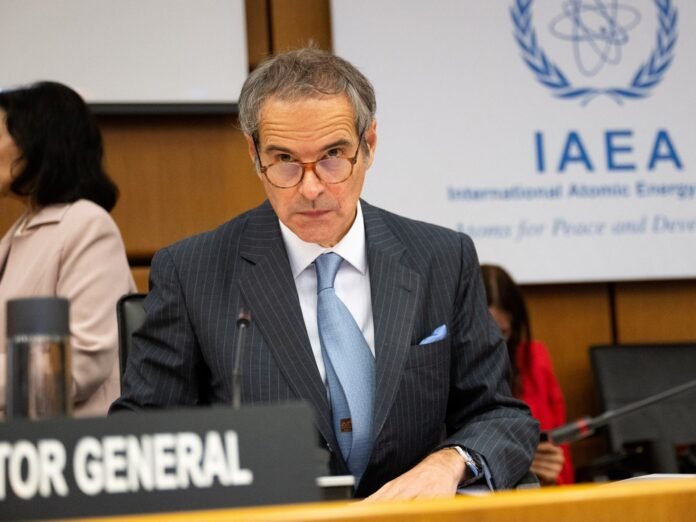Watchdog IAEA calls for return to negotiations and warns of ‘unimaginable’ destruction as Tehran criticises IAEA chief for rhetoric it believes helped pave way for strikes and mulls exit from NPT.
The United Nations nuclear chief has estimated that military attacks by Israel and the United States have inflicted considerable damage to Iran’s nuclear facilities.
Rafael Grossi on Monday told an emergency board meeting of the International Atomic Energy Agency (IAEA) – the UN’s nuclear watchdog – that craters caused by ground-penetrating US bombs were visible at Fordow, the cornerstone of Iran’s nuclear enrichment programme.
Israel said as it launched the attacks on Iran on June 13 that Tehran was close to developing a nuclear weapon.
The US made the same claim as it entered the conflict directly on Saturday, striking Iran’s three key nuclear facilities: Fordow, Natanz and Isfahan. US President Donald Trump claimed the strikes had “obliterated” the three sites.
Grossi said while “no one, including the IAEA, is in a position to have fully assessed the underground damage at Fordow”, it is expected to be “very significant”.
That is because of “the explosive payload utilised and the extreme vibration-sensitive nature of centrifuges”, Grossi added.
The IAEA chief also pointed out that the Natanz and Isfahan facilities were bombed by US warplanes and Tomahawk cruise missiles and damaged as well.
At Natanz, he said, the US hit a fuel enrichment plant. At Isfahan, it destroyed several buildings including some “related to the uranium conversion process”, while the entrances to tunnels used to store enriched material were hit.
The Israeli military continued its daytime strikes across Iran on Monday, with huge explosions reported in Tehran and other areas. Officials from Israel and Iran also reported another attack on Fordow.
Iran has continued to launch waves of missiles and drones against Israel and has promised to retaliate against the US.
Tehran has also threatened to quit the nuclear Non-Proliferation Treaty (NPT), and lawmakers have backed an effort to suspend cooperation with the IAEA.
Iran has accused Grossi and the IAEA of being complicit in the conflict, saying that its “biased” reporting on Iran’s nuclear activities was used as a “pretext” by Israel for its attack.
During the IAEA board meeting, Grossi again emphasised that “armed attacks on nuclear facilities should never take place”, but did not directly condemn Israel or the US for the attacks.
He called for Iran and the US to return to the series of negotiations that were cancelled by the Israeli strikes, warning that “violence and destruction could reach unimaginable levels” should the conflict persist.
He reiterated that IAEA inspectors must be admitted to assess the damage at the nuclear facilities. At this point, no rise in radiation has been reported.
“I’m ready to travel immediately to Iran. We need to keep working together despite existing differences,” Grossi said.
Iranian authorities have not indicated whether they would be open to extending an invitation for the watchdog chief to visit.
Former IAEA official Tariq Rauf told Al Jazeera that Iran’s short-term nuclear enrichment capacity has been damaged or destroyed, but that the country still has about 9,000kg (19,800 pounds) of enriched uranium – at levels between 2 and 60 percent – that is unaccounted for.
“At some point, the IAEA will need to go in and again make material balance to ensure that all the material is there,” Rauf said.






